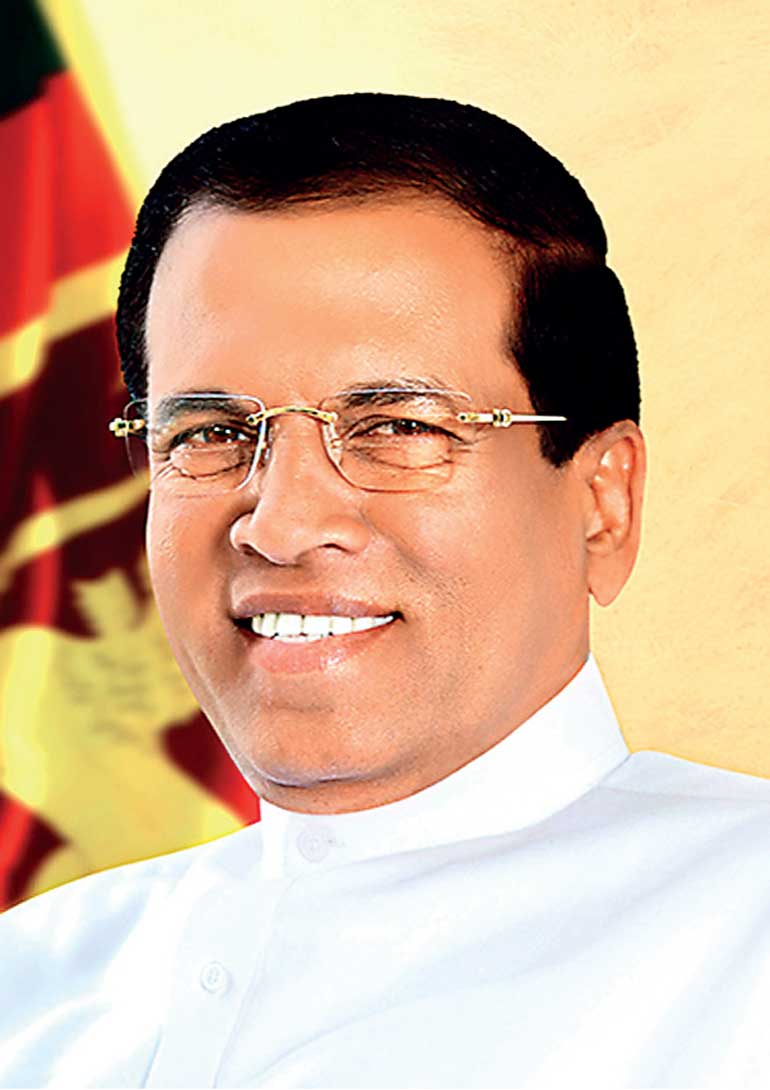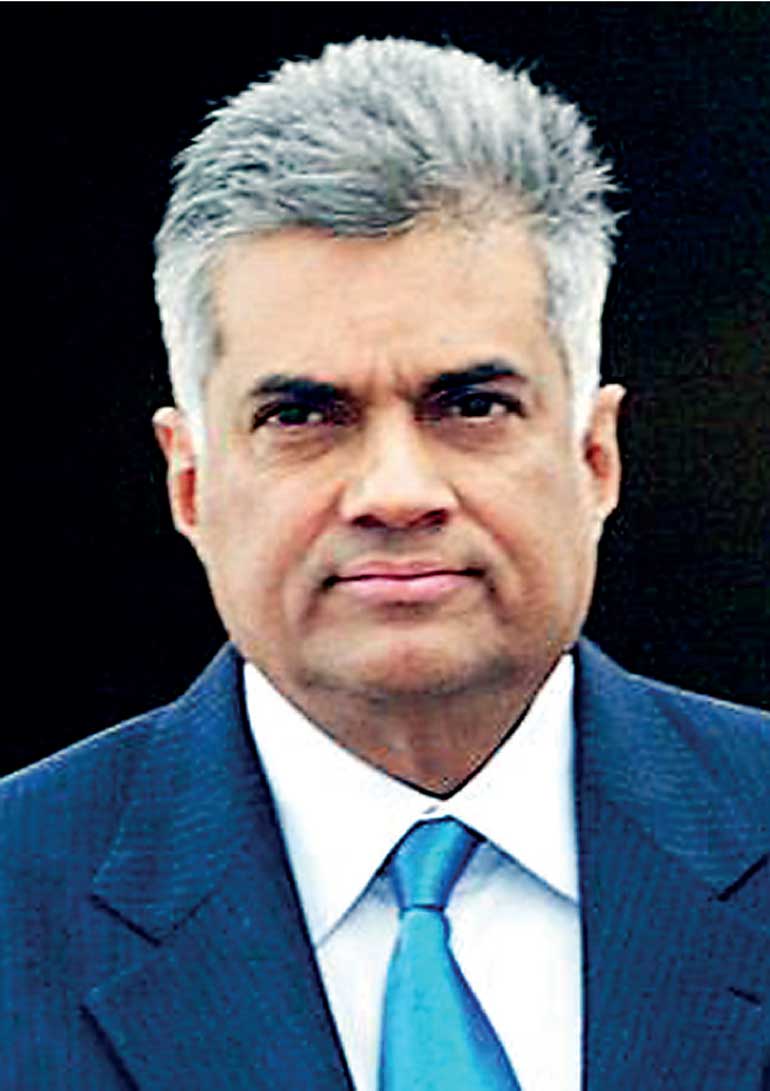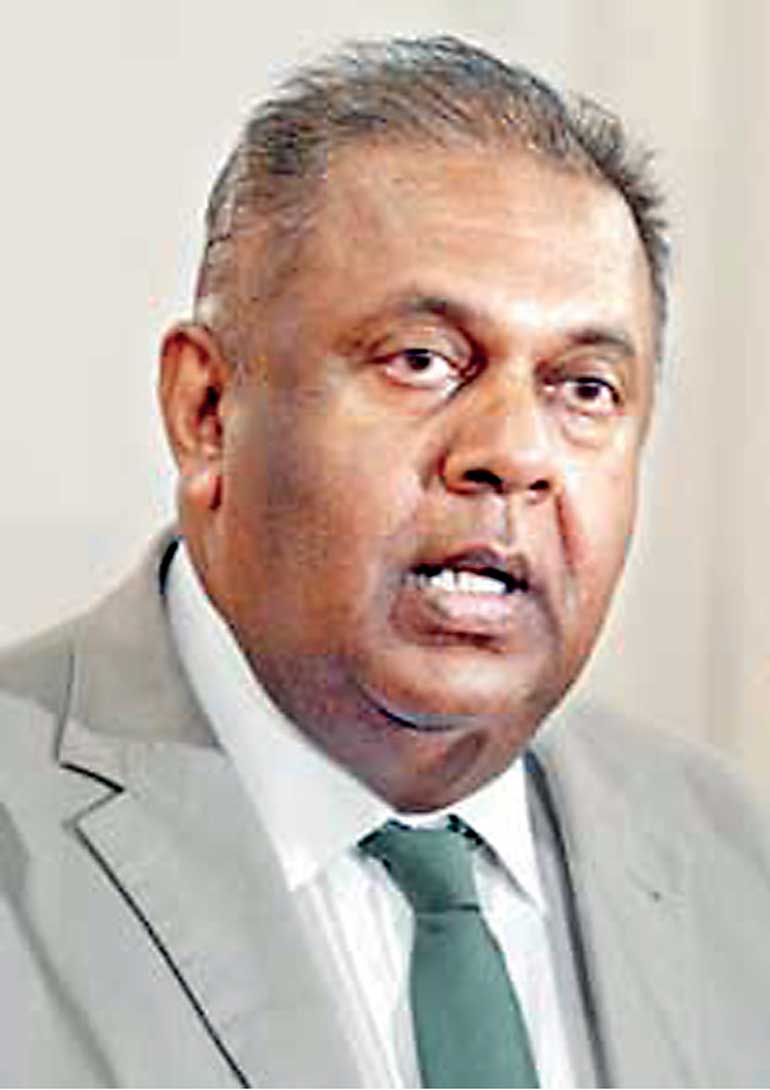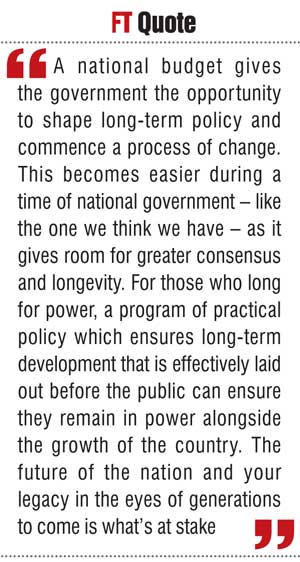Thursday Feb 19, 2026
Thursday Feb 19, 2026
Monday, 9 October 2017 00:00 - - {{hitsCtrl.values.hits}}
By Ajith Perera
Last month the Government invited all “interested stakeholders” to submit proposals for its upcoming Budget 2018, which many believe will be make or break the ‘Yahapalana’ Government that will enter its third year in office.
In stating ‘make or break’ I wish to emphasise that this country does not need another string of populist welfare measures that will ensure the Government stays in power. Instead, what it requires is the invention and stringent implementation of a well-conceived long-term development agenda that will capitalise on the identified strengths and opportunities of this economy and people.

President Maithripala Sirisena
Since 1955, Sri Lanka has been plagued by populist, political, power-hungry and personal agendas that have risen to the social, ethnic, economic and development issues that have made us a dormant nation. Therefore President, Prime Minister and dear members of Parliament, we look upon you to implement what is right for the nation: stand tall as the leaders who took bold measures to change the course of our history and put this country on a right track – a legacy and distinction that will far outweigh petty political gain.
A national budget gives the government the opportunity to shape long-term policy and commence a process of change. This becomes easier during a time of national government – like the one we think we have – as it gives room for greater consensus and longevity. For those who long for power, a program of practical policy which ensures long-term development that is effectively laid out before the public can ensure they remain in power alongside the growth of the country. The future of the nation and your legacy in the eyes of generations to come is what’s at stake.
Policy must shape economic direction as well as drive the social change that we envisage for a people of a developed nation. After all, it is the public and their actions that will ultimately determine our level of growth. Allow me to suggest a few simple points for your kind consideration.
As per the Central Bank’s Annual Report for 2016, Sri Lanka’s Gross Domestic Production was $ 81.3 billion. As per our conservative estimates, annual foreign exchange loss on the importation of vehicles is over $ 5 billion. Sri Lankan car sales outlets are teeming with vehicles waiting to be purchased, just as the many vehicles that congest our roads, as the state of our public transportation lies in the doldrums. This is in addition to countless vehicles brought in duty free for parliamentarians under the guise that they need new vehicles to serve the electorate. But how about when they went on foot to ask for the people’s vote?

Prime Minister Ranil Wickremesinghe
At this juncture, our country can do with what we have. For a period of five years the Government should consider strict regulation of vehicle imports, with a plan which encompasses the entire transportation sector. We have identified the three-wheeler culture as a menace; then curb it! There is no need to satisfy anyone by merely restricting imports – ban it altogether. We don’t need any more than the one million already polluting our streets. Increase the tax further on passenger vehicles above 1,800CC and provide further relief to wholly electric vehicles, but with tax slabs for model and make. For instance, the purchase of a Tesla cannot be compared to a Nissan Leaf.
The Central Bank Annual Report adds that “the passenger kilometers operated by the Sri Lanka Transport Board and the private sector bus operators increased at a slower pace by 6.1 per cent and 2.0 per cent, respectively, in 2016 when compared to the respective growth rates of 19.6 per cent and 6.1 per cent recorded in 2015. The growth in passenger kilometers operated by the Sri Lanka Railways also slowed down to 0.1 per cent in 2016 compared to 8.3 per cent growth posted in 2015.” This is because people opt to use their own transport, as the state of public and private buses and rail transportation is deplorable.
Heightened investments in this arena to provide more effective and attractive public transportation options would prove beneficial in the long term and a public-private partnership initiative that need not consider the thoughts and opinions of unions.
Burning hole in state coffers
Last year the Government imposed its biggest price hike on the tobacco trade with a 45% increase on tax making Sri Lanka’s popular cigarette brands the second most expensive in the Asia Pacific region. The country’s sole manufacturer of cigarettes, Ceylon Tobacco Company, has since reported a significant drop in volumes with projected annual revenue to the Government this year down by over 30%. In 2016, the Government spent Rs. 176 billion on the health sector in total, whilst it would have earned Rs. 125 billion in revenue this year from the CTC at pre-October 2016 prices as per a company statement.
The Central Bank adds that Personal Consumption Expenditure on health had reduced to 10.4% last year over 22.1% in 2015. So, what is the cost benefit that the Government has gained with the imposition of these taxes last year? There doesn’t appear to be any besides the losses.
Whilst volumes of legal cigarettes are down, the market has turned to cheaper alternatives. Along the southern coastline, some tourists are seen smoking filter-less cheap cigarettes as they find established brands too expensive. During a visit to Anuradhapura, I witnessed soldiers and security forces personnel purchasing beedi from grocers as legal cigarettes are far too pricey. Why are we prompting people to purchase cheap, inferior products that bring next to no revenue to the Government? How do we propose to become a tourist hub with such draconian views on tobacco and alcohol, which are an essential parts of tourism hubs?
Countries which share similar cultural sentiments such as Malaysia and Indonesia have identified this factor and have learnt to regulate products in a progressive manner. Our inability to do so at the cost of massive revenue to Government is baffling. Together with the drop in volumes of cigarette sales and the rise of smuggled products and beedi, the total loss to the Government annually from the sector is more than Rs. 50 billion. We need to reverse this loss (and invest the gains in transportation and urban road infrastructure).

Finance Minister Mangala Samaraweera
Tourists and Sri Lankans alike make an informed adult decision to purchase or consume tobacco and alcohol products. The effects of consuming these are drilled into our systems from our school days, and the decision to consume them as adults is a choice the consumer has made. International organisations and funds have pumped millions of dollars into the anti-tobacco lobby, which has systematically employed and persuaded politicians and agencies to act against the legal tobacco industry, whilst turning a blind eye to smuggling and the rise of inferior products such as beedi that cause more significant harm to consumers. They do not have the means to tackle the illicit trade which is growing unabated. We need to be prudent with our policy. Those who choose to be consumers must be given access to safe and quality products with adequate communication on its impacts. These products need to bring in due revenue to the Government. Overpricing and overtaxing any product is counterproductive and only gives incentive for the growth of black markets and this has been the experience in Sri Lanka. We need to adopt a pragmatic long-term policy with respect to tobacco and alcohol, one that will safeguard consumer health and interests, our aspirations as a tourism hub and cement government revenue.
With respect to the tourism sector, the growth of digital marketing solutions has given rise to a much larger informal hotel sector in addition to the numerous informal tourist services that are available. Whilst we must recognise these attempts at entrepreneurship and service, the lack of system, training and standards do more harm to Sri Lanka’s tourism product and image than good. In addition, this amounts to a significant loss of revenue to the Government; well over the $ 5 million annually.
Many Sri Lankans are dependent on internal and international tourists as a means of livelihood. A system to bring them into the formal fold should by no means drive them out of business; instead it must seek to empower them, whilst protecting the standards and interests of the Government and the nation. This once again requires a carefully planned and laid out program of action which entails public-private cooperation, and can support the Government’s ambition to build a strong economy with one million new jobs.
Deposit rates
Some attention also needs to be focused on raising rates on deposits. Current deposit rates are rather low in comparison to borrowing rates, and are unattractive to the diverse consumer segments present in Sri Lanka. There is still a large unbanked segment in the country, and when deposit rates are too low it becomes difficult to attract them into the formal sector, which fuels the continued prevalence of unauthorised informal money-lending and financial schemes that prove troublesome in smaller communities.
Technology and mobility are effective tools to break this barrier, but our efforts have not been largely successful in this endeavour. Therefore, better incentives would have to be considered in terms of rates and the use of technology for banking purposes.

Agriculture is an area which needs our urgent attention. Sri Lanka is an agricultural nation and in my view despite any advancement in manufacturing and industry, agriculture will remain our base. But browsing through the 2016 Annual Report it becomes evident that no sector within the agricultural fold had made gains last year, with the overall segment declining to 7.1% of GDP. Global supply and demand factors, natural disasters including floods and drought severely impacted the overall sector. However, there is room for improvement to the overall productivity of agriculture in Sri Lanka and its position and contribution. I believe it is important to maintain fixed prices as it provides a safety net for farmers and encourages them to stay in the fields. However, better attention and allocation of resources is required for systematic crop planning to avoid oversupply and even undersupply. Incentives must be provided for farmers to adopt automation to their fields, which would also be imperative to keep younger generations interested in agriculture – as the lack of labour turns out a critical issue for the development and expansion of the sector. I believe it is time to do away with any subsidies or benefits offered for fertiliser or at least implement strict caps on supply, as we observed many instances of farmers misusing fertiliser in attempts to boost harvests during off seasons, which in turn does great harm to the crop, soil fertility and farmer health.
It is time to take a long-term development view to transform Sri Lanka, to help the country and its people achieve what they really can. As this Government enters its third year this moment presents ample opportunity to make the change and do what is required and do what is right. It has the numbers in the house to do so, but whether it has the will to do so only time will tell. Doing the right thing is seldom popular but its outcomes are what matters.
(The writer is a retired marine security services director, who was attached to shipping services in Sri Lanka and the Middle East, with extensive experience in the shipping and logistics industry and working with authorities on regulation and anti-smuggling operations)